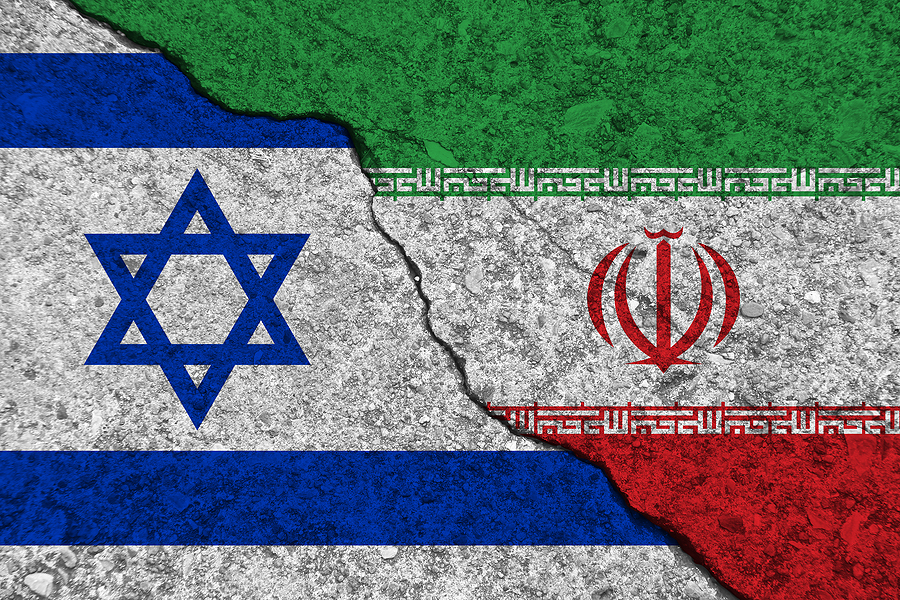In recent years, the specter of military confrontation between Israel and Iran has loomed larger than ever.
Israel’s threats to neutralize Iran’s nuclear capabilities are now a reality. The implications of the Israeli strike and war between Israel and Iran becomes increasingly plausible. It is critical to analyze the ramifications of this conflict, the historical context of the U.S. Middle East strategy, and the responsibilities of political leadership in both Israel and the United States.
The prospect of military confrontation between Israel and Iran is not only a significant regional concern but a global one.
A series of airstrikes targeting Iranian nuclear installations may trigger retaliatory actions from Iran, which could last for an extended period. Expecting a swift and isolated incident would be naïve, as both nations have demonstrated a willingness to engage in prolonged conflicts. The effect of such a protracted engagement could destabilize the entire region, with potential consequences reverberating across neighboring countries and enhancing the risk of broader regional wars.
The United States’ strategy in the Middle East has been under scrutiny, particularly since the Bush administration. For years, the U.S. has positioned itself as Israel’s staunch ally, yet there have been instances where it has faltered in providing unwavering support during critical moments. The Trump administration’s approach has been particularly perplexing, marked by inconsistent policies toward both Iran and Israel. The recent U.S. negotiations with Iran conveyed a lack of firmness, while the administration’s engagement with Israel, especially regarding Gaza, fell short of effectively addressing the complexities of the ongoing conflict.
Furthermore, President Trump’s visit to Saudi Arabia was indicative of a broader dissonance in U.S. policy.
While seeking to strengthen ties with key regional players, the focus seemed predominantly on economic and strategic partnerships rather than addressing the pressing issues fueling tensions in the Middle East. This neglect of regional dynamics has led to a situation where Israel feels compelled to act independently in its own defense.
Israel’s decision to initiate military action against Iran sends a clear message to the United States: while American diplomacy within the region has been perceived as ineffective, the security risks faced by Israel remain paramount.
The Israeli leadership is aware that its national security relies on its ability to neutralize perceived threats, regardless of international repercussions. As such, any military engagement that unfolds between Israel and Iran will likely have wider geopolitical ramifications, drawing the U.S. into a conflict that it appears unprepared for, both logistically and strategically.
In an era where significant resources can be allocated toward domestic endeavors—such as extravagant celebrations at the cost of millions—the priorities of leadership must be re-evaluated. Critical issues overseas require immediate attention and finesse rather than domestic distractions that can be handled by states.
It is incumbent upon the current administration to reassess its posture and prepare for the likelihood of renewed hostilities between Israel and Iran, understanding that such a clash could engulf the United States in yet another Middle Eastern conflict without a clear exit strategy.
Moreover, any military engagement could further complicate the already tenuous relationships among various Middle Eastern states, prompting a reevaluation of alliances and existing geopolitical dynamics. As the region stands on the precipice of international turbulence, vigilant diplomatic efforts, combined with steadfast support for allies, must be prioritized to avoid escalation into a larger, uncontrollable war.
In conclusion, the tensions between Israel and Iran represent a critical juncture for U.S. foreign policy and regional stability. Israel’s impending military actions highlight a growing impatience with American diplomacy, suggesting that it may be time for a reevaluation of strategies in the Middle East. Political leadership must prioritize international relations and security over domestic distractions, understanding the interconnected nature of global conflicts. The path forward requires a delicate balancing act between supporting allies and fostering diplomatic resolutions in a region rife with historical grievances and complex power dynamics.


